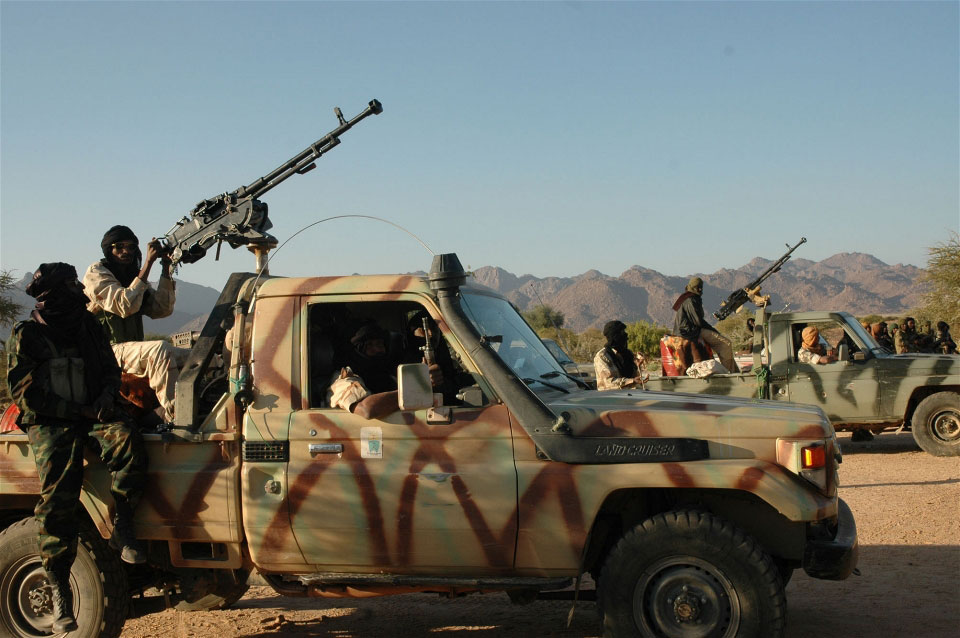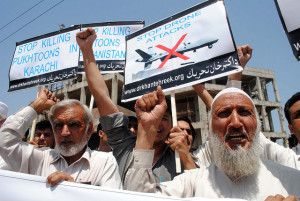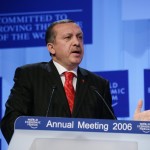By International Crisis Group
What’s new? In Mali, Burkina Faso and Niger, a gold boom is attracting the attention of diverse armed groups. Security forces are struggling to control gold mining zones in regions that the state has neglected or abandoned.
Why does it matter? Artisanal gold mining provides armed groups, in some cases including jihadists, with a new source of funding and potentially even recruits. If left unregulated, it risks fuelling violence in the region.
What should be done? Sahelian states should reassert their presence in mining areas, either directly or through allied private actors, and take steps to formalise artisanal gold mining. Sub-regional and international mechanisms could limit clandestine gold exports and reduce risks that the gold trade will finance militancy and terrorism.
Executive Summary
In the central Sahelian countries of Mali, Burkina Faso and Niger, armed groups have seized gold mining sites since 2016 in areas where the state is weak or absent. Artisanal gold mining has boomed since the 2012 discovery of a Saharan vein stretching from Sudan to Mauritania. Gold mines provide armed groups, in some cases including jihadists, with a new source of funding and even terrain on which to recruit. Informal networks in the region are increasingly involved in smuggling the precious metal. Artisanal mining thus risks fuelling violence and reinforcing transnational crime. Sahelian states should take steps toward formalising artisanal gold mining, while avoiding alienating miners. They should redouble efforts to secure mining areas, while ensuring that the forces doing so, whether security forces or allied militias, avoid predatory behaviour. Governments in the Sahel and those countries that buy its gold should strengthen their regulation of trade in the metal.
States in the region are struggling to effectively secure gold mines. Security forces are reluctant to deploy in rural areas where their presence is contested and lack resources to deal with non-state armed actors’ violent appropriation of gold resources. States thus tolerate, or even encourage, the formation of local, non-state armed groups to whom they delegate – for now informally – responsibility for securing mines. But such measures have major limitations: the authorities’ ability to regulate mining sites, even indirectly, crumbles as security deteriorates and armed groups challenge state authority in parts of the region. In this context, armed groups of all stripes can gain greater autonomy by exploiting gold resources, increasingly bypassing the state. Two recent attacks that killed more than sixty civilians working in the gold mining sector in Burkina Faso – the first against an artisanal site in the north west in October and the other near an industrial site in the east in November – showed that violence is becoming more acute.
The growth of artisanal gold mining threatens the state in other ways. The financial stakes involved have become considerable in recent years. This has encouraged the creation of informal local, regional and international smuggling networks. Such networks can help finance armed groups, including those engaging in terrorism, and encourage money laundering in the region as traffickers interfere in the artisanal gold economy.
While local dynamics vary across the Sahel, the authorities in each country can take steps to return to mining areas and prevent armed groups, including jihadists, from seizing resources:
- In high-risk mining areas, states should either deploy their security forces near the sites (but not necessarily in the mines themselves), or give local non-state actors a more official role and better supervision as they secure mining zones. In either case, site security arrangements should be accompanied by governance mechanisms to prevent predation by those forces securing mines, which would push gold miners toward armed groups hostile to the state.
- In areas where states can exercise authority without extensive security measures, they should adopt measures to formalise some artisanal mining, for instance issuing individual gold mining permits and setting up gold trading posts. By offering tax benefits or basic services, states can show their value to miners. Regional governments should also find a balance between allowing larger companies to industrialise sites, thereby generating revenue for the state, while preserving areas for artisanal gold mining and thus ensuring that miners do not lose their livelihoods.
- Regional states should exert greater control over gold trading networks to reduce the risk of money laundering and funding of armed groups. They should harmonise their regulatory frameworks and develop specific financial mechanisms to promote the transport of gold through formal – rather than informal – private or public networks. The United Arab Emirates (specifically Dubai), Switzerland and China, the main importers of Sahelian gold, should strengthen their legal frameworks for gold imports.





